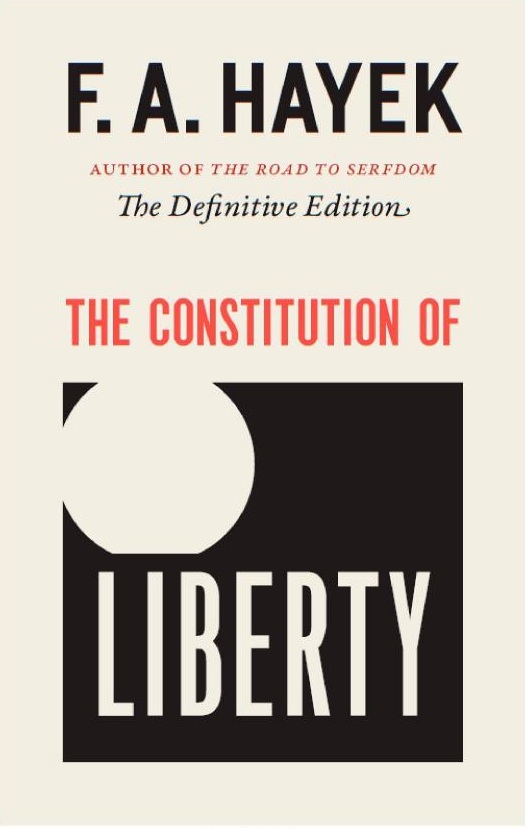London: Routledge and Kegan Paul, 1960; Chicago: University of Chicago Press, 1960/1963/5 (also 1969 edition); Toronto: The University of Toronto Press, 1960, x, 570 pp. Also available in paperback: Chicago: Henry Regnery Co. Gateway Edition, 1972.
From Introduction:
“If old truths are to retain their hold on men’s minds, they must be restated in the language and concepts of successive generations. What at one time are their most effective expressions gradually become so worn with use that they cease to carry a definite meaning. The underlying ideas may be as valid as ever, but the words, even when they refer to problems that are still with us, no longer convey the same conviction; the arguments do not move in a context familiar to us; and they rarely give us direct answers to the questions we are asking. This may be inevitable because no statement of an ideal that is likely to sway men’s minds can be complete: it must be adapted to a given climate of opinion, presuppose much that is accepted by all men of the time, and illustrate general principles in terms of issues with which they are concerned.
It has been a long time since that ideal of freedom which inspired modern Western civilization and whose partial realization made possible the achievements of that civilization was effectively restated. In fact, for almost a century the basic principles on which this civilization was built have been falling into increasing disregard and oblivion. Men have sought for alternative social orders more often than they have tried to improve their understanding or use of the underlying principles of our civilization. It is only since we were confronted with an altogether different system that we have discovered that we have lost any clear conception of our aims and possess no firm principles which we can hold up against the dogmatic ideology of our antagonists.”
Online:
Amazon

